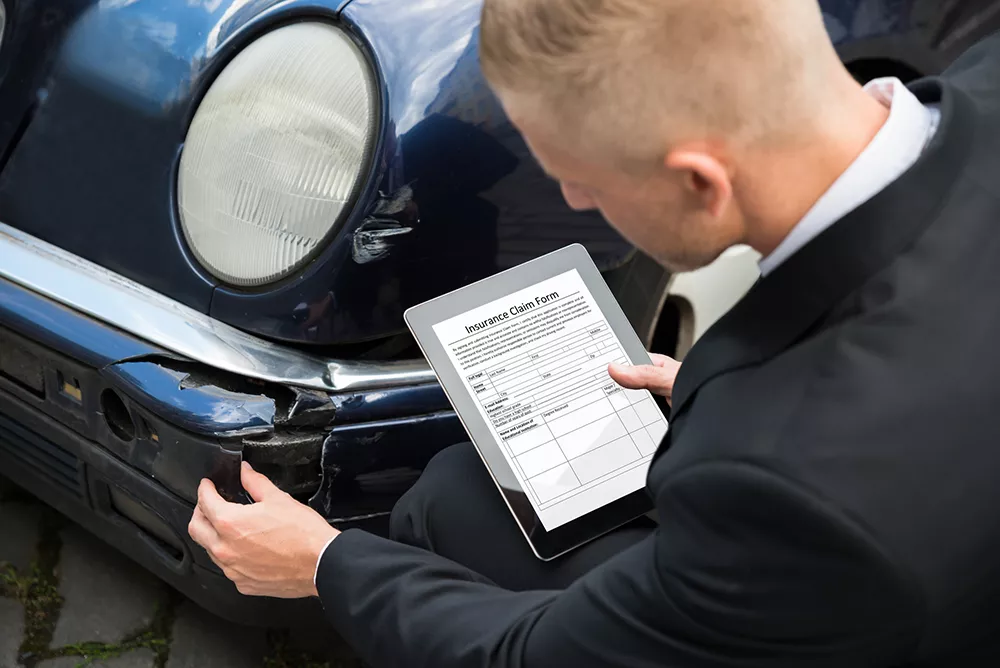When you get yourself a new car, one of the first things you need to do is get car insurance. If you’re a first-time car insurance buyer, the process can be a bit overwhelming. There are so many options to consider and terms to understand. However, getting the right car insurance is crucial to protect yourself from potential financial burdens in case of an accident or any other mishap.
As a trusted personal injury law firm in Minnesota, Butwinick Injury Law understands the importance of having adequate car insurance. That’s why we have put together 11 essential tips for first-time car insurance buyers to help them make informed decisions and protect themselves from potential risks.
What Exactly is the Purpose of Car Insurance?
In Minnesota, every driver is required by law to carry a minimum amount of car insurance coverage. The primary purpose of car insurance is to protect you, your passengers, and other drivers in case of an accident. It provides financial coverage for damages and injuries resulting from a car accident or any other incident involving your vehicle. Without car insurance, you could be faced with significant financial liabilities that can put a strain on your finances.

11 Best Tips Every First-Time Car Insurance Buyer Should Know
Given the importance of having proper car insurance, equipping yourself with the right knowledge before purchasing a policy is essential. As a first-time car insurance buyer, there are a lot of things you may not be aware of. By knowing how to choose the right coverage and understanding various insurance terms, you can avoid costly mistakes and ensure that you are adequately protected.
Here are 11 invaluable tips to help you as a first-time car insurance buyer:
Understand Your Needs
Before you purchase car insurance, it’s crucial to assess your needs and determine the type of coverage that is right for you. Consider factors such as your driving habits, the value of your vehicle, and your budget. Understanding your requirements will help you narrow down your options and find the most ideal policy.
Research Different Coverage Options
Car insurance policies offer various types of coverage, including liability, collision, comprehensive, and more. Research each type to understand what they entail and determine which ones are necessary for your situation. For instance, if you live in an area prone to natural disasters, comprehensive coverage might be a wise investment.
Compare Quotes from Multiple Providers
Don’t settle for the first car insurance quote you receive. Take the time to shop around and compare quotes from different providers. This will give you a better idea of what’s available in the market and help you find the most competitive rates.
Consider Bundling Policies
Many insurance companies offer discounts for bundling multiple policies, such as car and home insurance. Consider bundling your policies with the same provider to take advantage of these savings.
Check for Discounts
Insurance companies offer various discounts based on factors such as your driving record, age, and occupation. Be sure to inquire about any discounts you may be eligible for, as they can significantly reduce your premium.
Understand Deductibles and Limits
Deductibles and coverage limits play a crucial role in determining your out-of-pocket expenses in the event of an accident. Make sure you understand how deductibles work and choose limits that provide adequate protection without breaking the bank.
Review the Fine Print
Before signing on the dotted line, carefully review the terms and conditions of your insurance policy. Pay attention to exclusions, limitations, and any additional fees that may apply. If you’re unsure about anything, don’t hesitate to ask your insurance agent for clarification.
Consider Additional Coverage Options
In addition to standard coverage options, consider whether you need any additional protections, such as roadside assistance or rental car reimbursement. While these add-ons may increase your premium slightly, they can provide valuable peace of mind in certain situations.
Maintain Good Credit
Believe it or not, your credit score can impact your car insurance premium. Insurance companies often use credit-based insurance scores to assess risk and determine rates. By maintaining good credit, you may qualify for lower premiums.
Review Your Policy Annually
As your circumstances change, so too may your insurance needs. Review your policy annually to ensure it still provides adequate coverage at a competitive rate. Don’t hesitate to make adjustments or switch providers if necessary.
Don’t Sacrifice Quality for Price
While saving money on your car insurance is important, don’t sacrifice quality coverage for a lower premium. It’s crucial to have adequate protection in case of an accident, so make sure you’re not cutting corners just to save a few dollars.
Choose Wisely and Stay Protected
Being a first-time car insurance buyer doesn’t have to be confusing, overwhelming, or stressful. Follow these tips, do your research, and choose a policy that meets your unique needs. With the right coverage in place, you can drive with peace of mind, knowing that you are protected on the road.
And when the time comes, don’t hesitate to seek legal advice from a personal injury law firm like Butwinick Injury Law for any car insurance-related issues. We’re here to help you protect your rights and ensure you receive the compensation you deserve in case of an accident.

FAQs: First-Time Car Insurance Buyer
As a first-time car insurance buyer, you may have some questions about the process and coverage. Here are some common FAQs to help you out:
How can I ensure I’m getting the best rates?
To ensure you’re getting the best rates, it’s essential to compare quotes from multiple insurance providers. Additionally, consider factors like discounts, bundling policies, and maintaining a good credit score to lower your premiums.
What discounts might I be eligible for?
Eligibility for discounts varies depending on factors like your driving record, age, occupation, and vehicle safety features. Common discounts include safe driver discounts, multi-policy discounts, and discounts for completing driver education courses. Be sure to ask your insurance agent about any potential discounts.
What are deductibles and coverage limits, and how do they affect my policy?
Deductibles are the amount you’ll pay out of pocket before your insurance coverage kicks in, while coverage limits determine the maximum amount your insurance company will pay for a covered claim. Understanding these terms is crucial for managing your out-of-pocket expenses and ensuring adequate coverage.
How often should I review my car insurance policy?
It’s advisable to review your car insurance policy annually to ensure it still meets your needs and remains competitively priced. Life changes such as moving, getting married, or purchasing a new vehicle may warrant adjustments to your coverage.
Can I switch insurance providers?
Yes, you can switch insurance providers at any time. Just make sure to review the terms and conditions of your current policy and any potential penalties for canceling it before making the switch.
What should I do if I’m involved in an accident?
If you are involved in an accident, make sure to gather as much information as possible at the scene, including the names and contact information of all parties involved, photos of the damage, and witness statements. Report the accident to your insurance company as soon as possible and seek medical attention if necessary. It’s also advisable to consult with an auto accident lawyer to protect your rights and ensure you receive the compensation you deserve.

